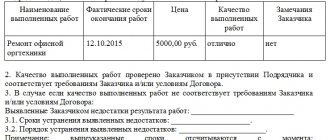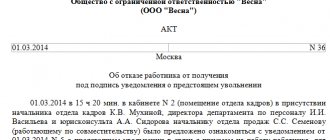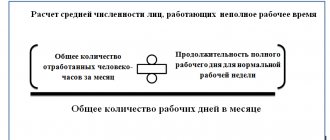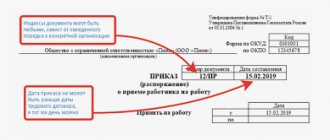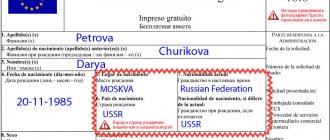Dumping is the sale of a product for export below its real value in the country of origin. Dumping is used to create non-competitive advantages in order to capture a new market. The main provisions on anti-dumping measures are set out in Article 37 of Federal Law No. 44-FZ.
- Consequences of dumping
- Possible risks of dumping
- Anti-dumping investigation
- Recommendations for anti-dumping investigation
- Types of anti-dumping measures
- Why are anti-dumping measures needed?
What is dumping and anti-dumping
Dumping is the deliberate reduction of prices below the market average in order to displace competitors. And the anti-dumping strategy is used to prevent unscrupulous participants from concluding a contract. In procurement under 44-FZ, dumping must be suspected if the contract price during the tender decreased by more than 25% of the NMCC.
If a participant greatly reduces the price, this does not mean dishonest intent and does not require a penalty. Sometimes companies deliberately reduce the price and even work at a loss in order to get a contract in their portfolio and enter the market. But in order to insure against possible dumping, the customer is obliged to present special requirements to the participant with a significant reduction in cost relative to the NMCC.
IMPORTANT!
According to Article 37, anti-dumping measures are applied when purchasing in the form of a competition and auction, regardless of the NMCC. For the customer, these measures are not a right; the customer is obliged to strictly comply with the procedures provided for by 44-FZ in case of a significant reduction in the cost of the government contract.
What is regulated by Article 37 of Federal Law-44 “Anti-dumping measures during a tender and auction”
Dumping is one of the methods of unfair competition that prevents the conclusion of fair, profitable contracts. Dumping is a scheme that involves the sale of goods and the provision of services at deliberately low prices (which do not correspond to market realities and are far from the market average).
It is quite widely used in the practice of concluding government contracts, and the problem of dumping is very relevant today, so a separate article 37 of the Federal Law “Anti-dumping measures during competitions and auctions” is devoted to it.
Most often, dumping is used to eliminate independent suppliers and conclude an agreement with the participant who is most beneficial to the customer. At the same time, dumping prices themselves are unprofitable for the supplier/contractor and appear only on paper, but other suppliers do not have the opportunity to conclude a contract.
Taking into account the specifics of Federal Law-44, artificially lowering the cost is an effective way to eliminate competitors. Often, the application of dumping policy is preceded by a preliminary agreement between the customer and the contractor (supplier).
Dumping in the process of public procurement is dangerous for the following reasons:
- It negatively affects the formation of healthy competition among participants.
- The quality of execution of government contracts is deteriorating (deadlines are missed, low-quality goods are supplied or low-quality work is performed).
- Often the execution of a contract fails and it is necessary to cancel it, hold a new auction and conclude a new contract.
- It is actively used in corruption schemes and leads to budget losses . In this case, as a result of dumping, the company affiliated with the customer wins, which allows him to actually appropriate the money.
In Art. 37 FZ-44 spells out measures that are designed to make the public procurement process extremely open and in practice should minimize the likelihood of dumping conspiracy.
Although experts admit that these measures are often not enough to completely eliminate dumping schemes.
Differences in 44-FZ and 223-FZ
The law strictly defines the cases when anti-dumping measures are applied under 44 Federal Laws, the procedure for their application, and their types. The established rules for applying measures are mandatory and the same for all customers.
Federal Law No. 223-FZ gives customers greater freedom in the fight against dumping - anti-dumping measures under 223-FZ are not provided for by the law itself, all the rules are set in the procurement regulations by the customer himself: he has the right to adopt the system of measures from the law on the contract system or introduce other rules application of measures.
How to use
Anti-dumping measures vary depending on the size of the NMC:
- if the initial price of the tender exceeds 15 million rubles, when concluding a contract based on its results, the winner is obliged to ensure performance in an increased amount. The security provided will be one and a half times the amount originally declared by the procurement organizer;
- if the initial tender price does not exceed 15 million rubles, the participant who proposed the contract price below the initial price by more than 25% has a choice: provide performance security increased by one and a half times, or confirm his good faith and provide standard security. That is, anti-dumping measures under 44-FZ and contract enforcement are not mutually exclusive. The security is provided in any case, but if the participant does not intend to confirm his good faith, it has an increased amount.
When purchasing certain types of goods, including emergency aid supplies or fuel, the customer additionally requires justification for the price offered by the participant. Anti-dumping measures allow the following justifications:
- letter of guarantee from the manufacturer;
- documents confirming the availability of goods from the participant;
- other documents that confirm that delivery of purchased goods at the stated price is possible.
An anti-dumping measure is the use of different values of the significance of certain criteria during the competition. Thus, in cases where the initial maximum contract price is reduced when holding tenders for the purpose of concluding contracts for the performance of research, development or technological work, the provision of consulting services by 25% or more, the value of the significance of such a criterion as the contract price is set equal to 10% the sum of the significance values of all criteria.
In May 2021 in Art. 37, Part 13 was introduced, which prohibited customers from making advance payments to suppliers who offered a significant reduction in the NMCC. This measure is aimed at preventing fraud by suppliers by preventing them from receiving money before the contract is completed without the intention of making a delivery.
What are anti-dumping measures and when are they applied?
Anti-dumping measures (ADM) are used in competitions and auctions. They are aimed at identifying and preventing dumping, i.e. artificially reducing the contract price by 25% or more. Unscrupulous participants try to eliminate competitors in this way. And for customers, this risks receiving a low-quality service or product.
The winner of the tender, who has reduced the contract price by more than 25%, is required to provide an increased OIC (contract performance security), or confirm his good faith. In some cases, the winner must justify the final price offer.
Important point! Anti-dumping measures are applied in tenders and auctions and are not applied in requests for quotations and requests for proposals. In the latter types of bidding, the participant can lower prices without any consequences.
Let us examine the general procedure for applying such measures under 44-FZ, depending on the NMCC.
If the NMCC is more than 15 million rubles, then the contract with the supplier, who has reduced the price by more than 25%, is concluded after he provides the OIC, increased by one and a half times the initial cost of the contract, but not lower than the advance amount (Part 1, Article 37 44- Federal Law).
If the NMCC is no more than 15 million rubles, then the winner of the purchase, who won the auction with an impressive reduction, has the right to choose anti-dumping measures himself: provide an increased OIC or confirm his good faith with the simultaneous provision of OIC. In the latter case, the OIC is provided in the amount specified in the tender documentation (Part 2 of Article 37 of 44-FZ).
For what reason can participants significantly reduce the contract price?
The procurement participant may reduce the NMCC on purpose or by mistake. He has his own reasons for this:
- The customer made a mistake when calculating the contract price. Even if you lower it by more than 25%, the winner will remain in the black.
- The participant is focused specifically on this order and plans to complete it properly even at a low cost.
- The participant initially planned to work in bad faith. For example, delivering low-quality goods or receiving an advance and not fulfilling obligations.
- The participant made a mistake when calculating profitability, but he still needs to execute the contract at a loss in order to avoid being included in the RNP.
How can a procurement participant confirm his/her integrity?
The good faith of the participant is confirmed by three contracts executed under 44-FZ without fines and penalties within three years before the date of filing the application for participation in the procurement.
The specifics of contracts executed in the past are not important and may not coincide with the won procurement in respect of which anti-dumping measures are applied to the participant. The main thing is that out of the 3 contracts presented, the price of at least one of them is 20% or more of the NMCC.
Anti-dumping measures in “paper” and electronic procedures
There is a difference between ADM for “paper” procedures and electronic ones:
| "Paper" purchases | Electronic procurement |
| The participant submits information about good faith as part of the application. If the participant does not provide such information, or the commission finds it unreliable, the participant’s application is rejected. | The participant submits information about good faith when concluding the contract. If the information is recognized by the commission as unreliable, then the participant is declared to have evaded obligations and information about him is entered into the RNP (Register of Unscrupulous Suppliers). |
Additional anti-dumping measures
For some procurement items, Art. 37 44-FZ obliges the customer to apply additional ADM to suppliers. They apply in addition to general measures, but not in place of them.
Thus, if goods are purchased to ensure normal life support (products, means for providing emergency and specialized medical care in an emergency or urgent form, medicines, fuels and lubricants), then the supplier provides justification for its price as part of the application. Suitable for these purposes:
- letter of guarantee from the manufacturer of the product;
- documentary confirmation of the availability of goods from the supplier;
- other documents confirming the delivery.
44-FZ itself does not regulate the requirements for the participant to justify the proposed contract value. Also, the law does not provide grounds on which the commission could reject the justification of the participant’s price. Therefore, the supplier has the right to use a free form when justifying it. And the very fact of submitting a justification is the basis for recognizing the participant as having completed additional anti-dumping measures.
The customer can reject a participant’s application or refuse to enter into a contract with him for only one reason: if the participant has not provided such justification.
Also, additional anti-dumping measures are applied when purchasing research, development or technological work, or providing consulting services through a competition.
During such tenders, the customer has the right to provide for different significance of evaluation criteria for applications from suppliers that have decreased in cost by 25% or more, and who have offered a price within the framework of a 25% reduction. But if the customer has not provided for a different procedure for assessing applications for dumping applications, their applications must be considered on a general basis with the application of general anti-dumping measures to the relevant participant.
Important point! According to Part 13 of Article 37 of 44-FZ, the customer is obliged to include in the contract a condition prohibiting the transfer of advance payments if such a contract is signed with a supplier who has reduced the price by 25% or more of the NMCC. Thus, artificial and unreasonable reduction of prices by unscrupulous participants who do not plan to fulfill their obligations is excluded.
Features of application in procurement for NSR and SONKO
Parts 6 and 8.1 art. 96 of the law on the contract system establishes preferential conditions for ensuring the execution of an agreement for SMP and SONO: these entities have the right not to provide security if they confirm their experience. To confirm their experience, they must provide information on the execution of at least three agreements concluded under the public procurement law over the past three years. The total amount of executed agreements must be at least NMCC of the purchase. If there are no such contracts, the participant has the right to provide security in accordance with the general procedure. The amount of security is calculated not from the NMCC of the tender, as is done according to the general rule, but from the price of the contract being concluded. These objections are justified, and in such cases anti-dumping requirements are not imposed.
Anti-dumping measures under 44-FZ for SMP and SONKO
If the procurement documentation contains restrictions for small businesses (SMB) and socially oriented non-profit organizations (SONCO), then the participant does not pay OIC taking into account ADM if, before signing the contract, he provides information from the register of contracts on the implementation of at least 3 contracts ( excluding succession) 3 years before filing the application.
These contracts must be executed without fines and penalties, and the sum of their prices must be at least NMCC. If there is no such data, then general anti-dumping measures are applied to the supplier. But according to Part 6 and Part 8.1 of Article 96 of 44-FZ, the security is calculated from the cost of the contract, and not from the NMCC, and cannot be less than the advance payment.
Specifics of anti-dumping measures in the procurement of medicines
General and additional ADM are applied to the participant when purchasing medicines included in the Vital and Essential Drugs list. 44-FZ provides for some features of such auctions. Anti-dumping measures are applied to a participant if he has reduced the price by 25% or more from the maximum selling price of the manufacturer, and not from the NMCC.
For example, a participant has reduced the price of NMCC by 50% or more, but the price he offers is not lower than 25% of the maximum selling price of the manufacturer of the drug. In this case, ADMs are not applied to the participant.
When purchasing medicines not included in the Vital and Essential Drugs list, anti-dumping measures are applied on a general basis.
Due to the difference in calculation methods, it is not allowed to purchase one lot that combines medicines included and not included in the Vital and Essential Drugs list.
When are anti-dumping measures not applied?
ADMs do not apply:
- in the case of an electronic auction, which is held at the cost of a unit of goods, work or service (see Letter of the Ministry of Finance of the Russian Federation dated October 13, 2017 No. 24-02-08/67122);
- if OIC is not provided in accordance with Part 8 of Article 96 of 44-FZ (see Letter of the Ministry of Economic Development of January 13, 2017 No. D28i-289);
- when concluding an energy service contract (see Letter of the Ministry of Economic Development dated August 17, 2016 No. D28i-2871);
- when purchasing drugs from the Vital and Essential Drugs list, when the cost of all drugs is reduced by 25% or less relative to their registered maximum selling price (Part 12, Article 37 of 44-FZ).
Responsibility
According to 44-FZ, the use of anti-dumping measures is mandatory, except for cases expressly provided for by law, therefore, failure to comply with anti-dumping requirements threatens liability for both the customer and the participant.
If the customer conducts a purchase without applying anti-dumping requirements if there are grounds for them or does not post information about them, he faces administrative liability under Art. 7.30 Code of Administrative Offenses of the Russian Federation.
A procurement participant who ignores the customer’s requirements is recognized as having evaded concluding an agreement, and information about him is transferred to the Federal Antimonopoly Service. The penalty is inclusion in the register of unscrupulous suppliers.
Main reasons for dumping
Among the reasons are the following:
Registration in the ERUZ UIS
From January 1 2020 , in order to participate in bidding under 44-FZ, 223-FZ and 615-PP, registration in the ERUZ register (Unified Register of Procurement Participants) on the EIS (Unified Information System) portal in the field of procurement zakupki.gov is .ru.We provide a service for registration in the ERUZ in the EIS:
Order registration in the EIS
- Formation of a customer base.
Organizations participating in government procurement want to win by any means, even realizing that a contract obtained in this way will not bring them additional revenue, but losses. By using active dumping, companies gain experience in participating in government procurement, which helps them subsequently enter into more profitable contracts. Successful experience in government procurement seems to be an essential condition for participation in auctions with multi-million dollar prices, in which all the rules must be followed.
- Elimination of competitors.
Relevant for entrepreneurs who do not incur large expenses, who, by setting a margin of 10–15% of the cost of a product or service, are already making a profit. It is quite natural for such companies to offer the lowest price. But for serious procurement participants who bear the costs of renting premises, payments to employees, and mandatory deductions, offering a low price is unprofitable. In such a situation, small firms and small entrepreneurs, since their products are much cheaper for their intended customers, can pose serious competition to large organizations.

